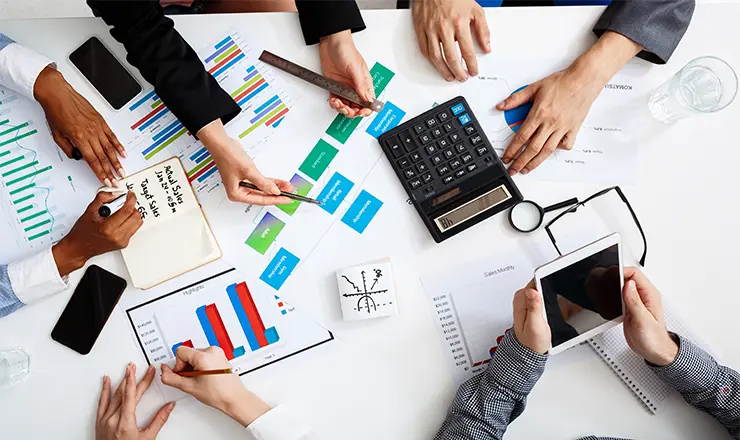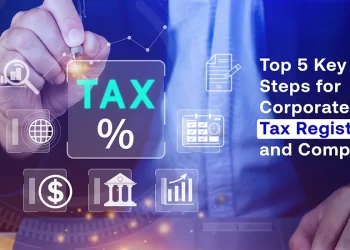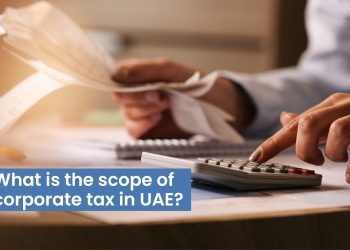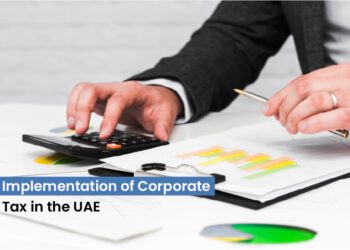

Value Added Tax (VAT) is a type of consumption tax that is applied to the value added at each stage of production or distribution of goods and services. It is a tax on the value added to goods or services, not a tax on the total revenue generated. VAT is generally charged as a percentage of the price of goods or services. VAT is a common tax system used by many countries around the world, including the United Arab Emirates (UAE). In the UAE, VAT was introduced in 2018 as a means to diversify the government’s revenue sources and reduce reliance on oil revenues.
Under the UAE VAT system, businesses that meet certain criteria are required to register for VAT and charge it on taxable supplies of goods and services. They are also required to keep records and submit periodic VAT returns to the Federal Tax Authority (FTA).
VAT is an important aspect of doing business in the UAE, and it is important for businesses to ensure compliance with VAT regulations to avoid penalties and other consequences.
VAT Benefits
Compliance
By using VAT services, you can ensure that your business is in compliance with the latest regulations and avoid potential penalties.
Time-saving
VAT can help streamline your VAT processes, freeing up time for you to focus on other aspects of your business.
Cost-effective
Outsourcing VAT can be more cost-effective than hiring and training in-house staff to manage your VAT processes.
Expertise
VAT service providers have a deep understanding of VAT regulations and can provide expert guidance on VAT-related issues.
Risk management
By outsourcing VAT services, you can mitigate the risk of errors and reduce the potential for financial loss or reputational damage.
Better decision-making
With accurate and timely VAT data, you can make more informed business decisions and have greater control over your finances.
VAT Process
Registration
If your business meets the criteria for VAT registration, you must apply for registration and obtain a VAT registration number.
Consultation
Once registered, you can seek consultation from VAT experts to understand your VAT obligations, its impact and how to manage VAT effectively.
Implementation
After consultation, you must implement VAT processes and systems to ensure accurate VAT calculations, invoicing, and reporting.
Return Filing
You must file VAT returns on a regular basis (monthly, quarterly, or annually) to report your VAT liability or refund claim.
Audit Support
In case of a VAT audit, you must provide necessary documentation and support to ensure compliance with VAT regulations.
Advisory
You can seek ongoing advisory to stay updated with VAT regulations and optimize your VAT compliance and management processes.
Why choose us
Expertise
VAT provider have team of experts with experience in VAT regulations and compliance requirements. Ensures that your business is in full compliance with law.
Time-saving
Managing VAT can be a time-consuming process. By outsourcing this task , you can save time and focus on other important aspects.
Cost-effective
Hiring an in-house VAT expert can be expensive. By outsourcing your VAT services, you can save on overhead costs such as salaries, benefits, and training.
Accuracy
A professional VAT provider can help ensure that your VAT returns are accurate and filed on time, reducing the risk of errors and potential penalties.
Peace of mind
By working with a reputable VAT provider, you can have peace of mind knowing that your VAT compliance is being handled by experts.
Value Added Tax (VAT) is a consumption tax that’s levied on the value added to goods and services at each stage of their production or distribution. It’s ultimately borne by the end consumer.
The UAE implemented VAT on January 1, 2018, as part of its efforts to diversify its revenue sources.
The standard VAT rate in the UAE is 5% of the value of the taxable supply.
Most goods and services are subject to VAT, unless specifically exempt or zero-rated.
Zero-rated supplies are considered taxable supplies, but VAT is charged at a 0% rate instead of the standard rate. This means that while VAT is applied to these supplies, the rate is zero, resulting in no additional cost to the recipient. Businesses can still claim input VAT credit on their purchases related to zero-rated supplies, which makes them favorable for international trade and essential goods.
Related Posts
request for proposal






